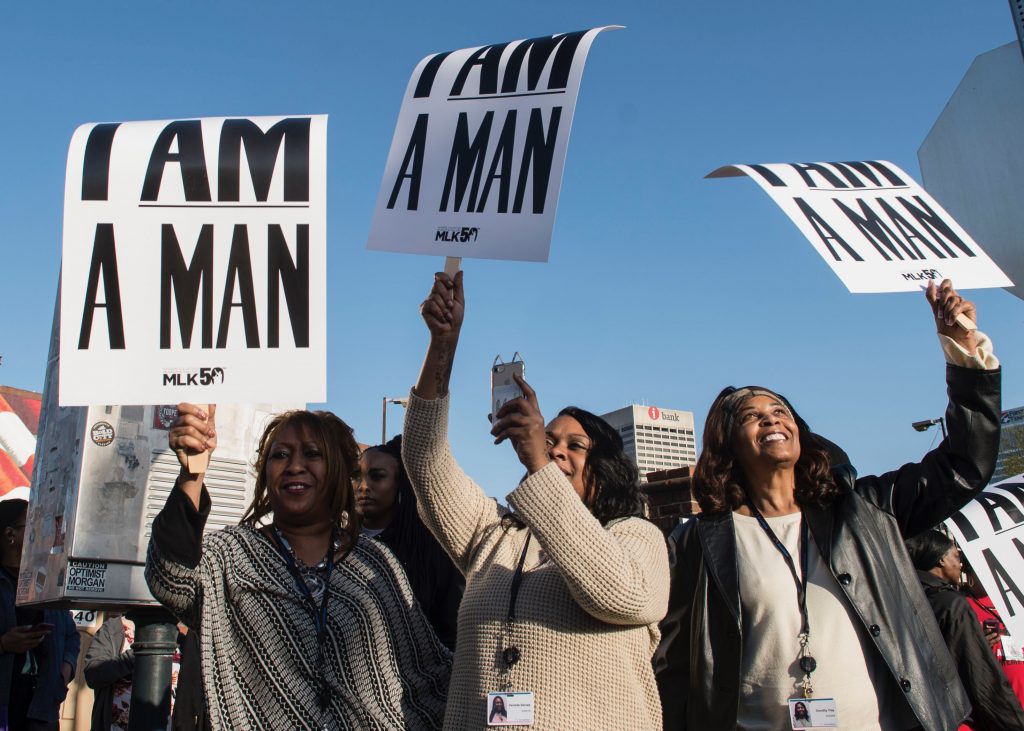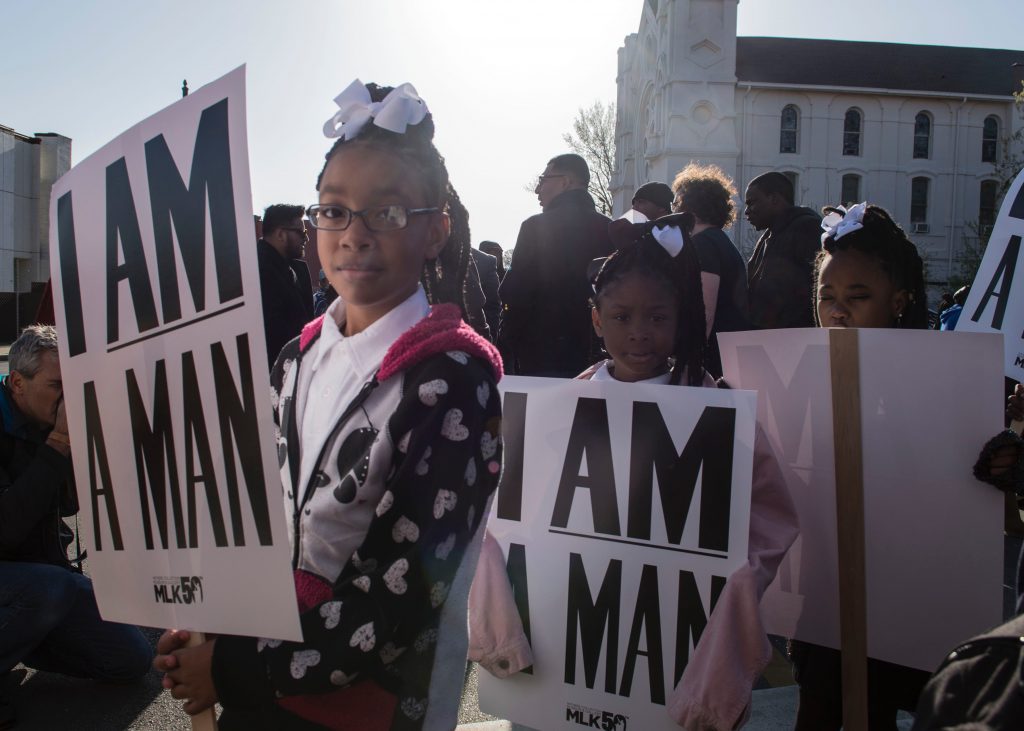MEMPHIS — “Our best days are ahead of us,” Memphis Mayor Jim Strickland said Wednesday morning.
Strickland was one of the main speakers at the “I Am a Man” reenactment photo on Beale Street as part of the commemoration of the 50th anniversary of the assassination of the Rev. Martin Luther King Jr. This event honored the legacy, love and loss of King.
The “I Am A Man” march refers to the Memphis sanitation workers’ strike that began Feb. 12, 1968. More than 1,000 African-American workers refused to report to work and demanded higher wages, safer working conditions and recognition of their union. Many carried signs reading, “I Am A Man.”
 “When this happened 50 years ago, I wasn’t born,” Memphis resident Alundis Pledge said.
“When this happened 50 years ago, I wasn’t born,” Memphis resident Alundis Pledge said.
Pledge works in nearby Cordova, Tennessee.
“Being able to say I was here to walk the grounds that Martin Luther King Jr. walked or be places where these historic people paved the way – it means a lot to stand here at that picture,” Pledge said.
Participants met at Eel Etc. on Beale Street. Eel Etc. is a museum that houses rare photos of civil rights activists, black entertainers and historical community figures. Within the shop there are signs, shirts and a photo area with the words “I Am A Man” posted for the public to see.
“Of course, there are still problems today. So, this is showing me where I can pick up and take off,” Pledge said.
Pledge is working to create a life that is prosperous enough to support himself and others, much like the sanitation workers of 1968. However, he and many others will have to close an economic disparity gap that has plagued communities of color for years.
White families in the U.S. accumulate a wealth of roughly $700,000 compared to the $95,000 accumulated by black families. The median wealth for white families in America is $134,230 in comparison to the $11,030 median income of black families.
“Are we really free, economically, if you look at the differences of those that have and those that have not? Makes you wonder if his life was really worth it,” Memphis native Sherryl Crite, who works in public service, said.
Fifty years ago, when King marched for jobs and freedom, the federal minimum wage was $1.60 per hour. Adjusted for inflation, that would be a base wage of about $10.55 per hour. The current federal minimum wage is only $7.25 an hour.
 “Now our struggle is for genuine equality, which means economic equality,” said King at a rally for sanitation workers in Memphis on March 18, 1968. “For we know that it isn’t enough to integrate lunch counters. What does it profit a man to be able to eat at an integrated lunch counter if he doesn’t have enough money to buy a hamburger?”
“Now our struggle is for genuine equality, which means economic equality,” said King at a rally for sanitation workers in Memphis on March 18, 1968. “For we know that it isn’t enough to integrate lunch counters. What does it profit a man to be able to eat at an integrated lunch counter if he doesn’t have enough money to buy a hamburger?”
Among women who hold full-time, year-round jobs in the United States, black women are typically paid 63 cents, and Latinas are paid just 54 cents for every dollar paid to white non-Hispanic men.
“We should not have to scuffle and struggle for equal pay. They have done studies, they have done studies, they have done studies. Pay the folks. I am one of those. Pay us,” Crite said. “We need to put a dent in the poverty that is happening right here in our community.”
Analyses show that 62 percent of the wage gap is directly related to occupational or industry differences, differences in experience and education and factors such as region, unionization and race. However, roughly 38 percent of the gap is unaccounted for. Leading research has determined that factors such as discrimination and bias continue to affect women’s wages.
“Being an African-American female (and) having to try to fight to get equal pay for my counterparts, that’s doing the same thing that I am doing, I shouldn’t have to,” Crite said.






